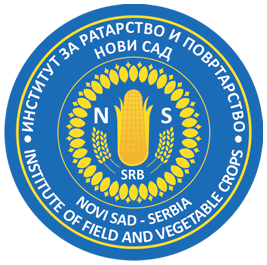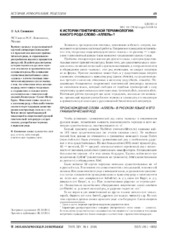К истории генетической терминологии: какого рода слово «аллель»?
On history of modern genetic terminology: What is a proper gender of term “allele”?
| dc.creator | Sinjushin, Andrey | |
| dc.date.accessioned | 2023-05-15T09:29:07Z | |
| dc.date.available | 2023-05-15T09:29:07Z | |
| dc.date.issued | 2016 | |
| dc.identifier.issn | 1811–0932 | |
| dc.identifier.uri | http://fiver.ifvcns.rs/handle/123456789/3550 | |
| dc.description.abstract | Занимаясь преподаванием генетики, невозможно избежать вопроса, вынесенного в заголовок настоящей работы. Непременно приходится встречаться с тем, что разные люди используют слово «аллель» по-разному — в муж ском («доминантный аллель») или женском («рецессивная аллель») роде. Проблема эта характерна именно для русского языка, в котором существительные имеют грамматический род. Более того, для существительных с исходом основы на мягкий согласный и нулевым окончанием, к которым относится и обсуждаемое слово «аллель», этот род неочевиден, не следует напрямую из их формы. Нулевое окончание может быть и у существительных второго склонения, относящихся к мужскому роду (хмель, дождь), и у существительных третьего склонения, относимых к женскому роду (дверь, лошадь). Подавляющее большинство современной генетической литературы написано на английском языке, который свободен от подобных противоречий в силу отсутствия у существительных категории рода: dominant allele, recessive allele. Настоящая работа преследует две цели: определить, насколько это возможно, правильный вариант употребления термина и проследить его смысловую и грамматическую эволюцию в русскоязычной биологической литературе. | sr |
| dc.description.abstract | In modern Russian scientific literature, one may find usage of term “allele” in both masculine and feminine grammatical gender. Existence of “proper” usage is debatable and hence became a topic of the given paper. History of term in Russian language and grammatical bases of its gender are briefly reviewed. Basing on statistics of usage of this word in Russian genetic journals, one may conclude that its usage in feminine gender tends to decline and is attributed almost exclusively to Leningrad and Saint-Petersburg scientific schools. The word “allele” in feminine gender more suits the existing tradition of interlingual transition of words ending with «-el». Nevertheless, the modern Russian genetic literature obviously prefers using this term in masculine gender. | sr |
| dc.language.iso | ru | sr |
| dc.publisher | Moscow : Eco-Vector LLC | sr |
| dc.rights | openAccess | sr |
| dc.rights.uri | https://creativecommons.org/licenses/by/4.0/ | |
| dc.source | Экологическая генетика | sr |
| dc.subject | grammar gender | sr |
| dc.subject | allele | sr |
| dc.subject | allelomorph | sr |
| dc.subject | genetic terminology | sr |
| dc.title | К истории генетической терминологии: какого рода слово «аллель»? | sr |
| dc.title | On history of modern genetic terminology: What is a proper gender of term “allele”? | sr |
| dc.type | article | sr |
| dc.rights.license | BY | sr |
| dc.citation.epage | 54 | |
| dc.citation.issue | 1 | |
| dc.citation.spage | 49 | |
| dc.citation.volume | 14 | |
| dc.identifier.fulltext | http://fiver.ifvcns.rs/bitstream/id/9487/bitstream_9487.pdf | |
| dc.identifier.rcub | https://hdl.handle.net/21.15107/rcub_fiver_3550 | |
| dc.type.version | publishedVersion | sr |


